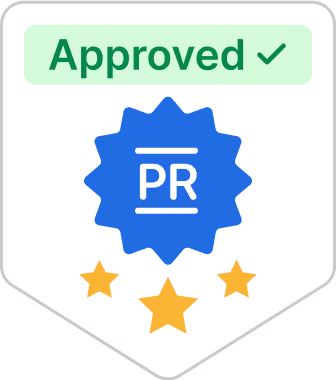5 Benefits of an LLC

Business school pop quiz: what kind of corporate structure is flexible enough to support a single member, a limitless amount of owners, or resemble a corporation, all while providing lucrative perks when it comes to tax season?
If you thought of an LLC, or Limited Liability Corporation, then you’re correct! But flexibility and a tax benefit aren’t the only reasons to consider an LLC. There are tons of ways this corporation structure can benefit you and your business.
Want to answer questions like, how much does an LLC cost, or find out if it is the right choice for your business goals? Read on to discover five benefits of having an LLC.
#1 Limited Liability
So, what is an LLC and how does it work? Investopedia defines an LLC as “a business structure in the United States whereby the owners are not personally liable for the company’s debts or liabilities.”
By the simple act of defining an LLC (and even simply spelling out the acronym), we already reveal one of its major uses: limited liability. By sharing the burden of ownership between one or more parties, one of the many LLC advantages is that it shields its owners from pricey lawsuits.
LLCs can protect you from common personal liability situations:
- Someone falls and hurts themselves on your business’ property
- One of your delivery drivers is involved in a car accident
- An employee harasses a customer or coworker, who then blames your business
As long as you weren’t personally, directly involved in the situation, you can’t be held liable for it. An LLC, or Limited Liability Company, creates a safe distance between the goings-on of your business and your personal assets.
#2 Flexibility
Business owners often choose LLCs for their unique ability to satisfy different leadership structures. As an LLC owner, you have tons of options on how to organize it for your business needs.
Here are a few of the ways LLCs can run:
- Single member LLC – You’re the star of the show and the entire backstage crew. Translation: you have sole ownership of a business and perform management duties. You get to work at your dream job in your self-made single member LLC business, without the tricky liability issues of operating as a sole proprietor.
- Multi member LLC – There’s no limit to the amount of members (owners) an LLC can have. Members can include people, corporations, other LLCs, and foreign entities. An operating agreement is usually outlined to define how much power each partner possesses. Each member is responsible for business profits and losses, and Multi-Member LLCs can be member-managed, meaning the members are also responsible for the company’s daily operations.
- Corporation style – When a Multi Member LLC appoints a manager, the LLC runs much like a corporation. You can utilize titles like President, VP, Treasurer, etc. All other members may invest and share profits, even if they don’t take part in management.
When you start an LLC, you can choose to maintain whatever management structure you started your business with and structure your company accordingly.
#3 Tax benefits
As a small business owner, managing taxes is a big part of keeping a business honest and profitable. In terms of tax season, what is the tax advantage that an LLC benefits from?
LLCs are the perfect choice for small business owners in part because of how your taxes will become streamlined. LLCs are classified as “disregarded” business entity, also known as “flow-through” and “pass-through” company. Unlike a C Corporation, which is taxed twice, an LLC is a legal entity that is taxed only once and filed alongside your personal taxes—in this case, being disregarded is actually a good thing!
With an LLC business structure, the IRS may tax you as a sole proprietorship, partnership, or corporation, depending on the structure you choose. Ultimately, LLCs help you avoid paying taxes on profits and double taxation when you pay personal income tax as a business owner.
#4 Less paperwork, more simplicity
Looking to cut back on some of the paperwork you do? Consider forming an LLC. A major benefit of an LLC is the simplicity that comes along with it.
As a glimpse into what you don’t have to deal with, here’s everything C-Corporations must do to maintain their status:
- File articles of incorporation
- Abide by statutory limits and requirements
- Elect corporate officers via official meetings
- Determine shares, bylaws, and internal management
- Meet on a regular basis to discuss financial status, current policies, and strategies
- Conceive an annual shareholder meeting
- File annual reports
- Pay fees each year
- File separate tax returns
LLCs, in contrast, don’t need to abide by these frequent meetings, formal officer roles, or board requirements. Plus, as we already mentioned, taxes are much easier to manage
#5 Business loans and credibility
One of the benefits of forming an LLC is that it is the perfect step up from being the sole proprietor of your business. They help usher you into the next phase of your operation, better able to compete with thriving companies. Founding and maintaining an LLC helps build your credibility as a company to potential customers and investors, and may improve the “professional” look of your brand as a whole.
But LLCs won’t just help with your business’ first impressions. Starting an LLC is the perfect way to start building a credit history for your business. That way, when you’re ready to do some major investing in business expansion, business loans are more accessible to you.
Get the full benefits of an LLC
Don’t know how to start an LLC? Skip the step where you spend hours on hold with the government, asking questions about filing requirements, how to apply for EIN, apply for SSNs, and more. Instead, simplify the process and apply for an LLC online now.
Sources:
- Investopedia. LLC. https://www.investopedia.com/terms/l/llc.asp
- UpCounsel. What is the Structure of an LLC? https://www.upcounsel.com/llc-structure
- Business News Daily. Limited Liability Company. https://www.businessnewsdaily.com/3747-limited-liability-company.html
- Nolo. Advantages of an LLC. https://www.nolo.com/legal-encyclopedia/key-advantages-llc.html
- How to Start an LLC. What is an LLC? https://howtostartanllc.com/what-is-an-llc























